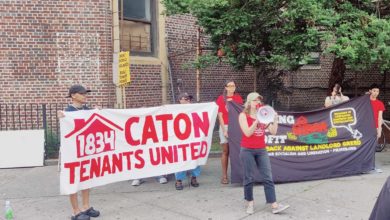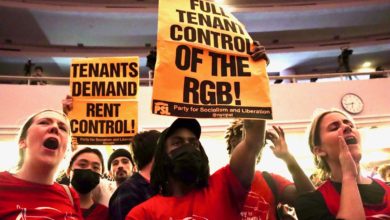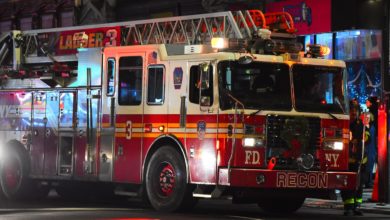On October 29, Denver police and city employees dismantled a homeless encampment, home to over a hundred individuals, near the Denver Rescue Mission, and cordoned it off with police tape. After about a hundred campers relocated to the South Platte River, the city again dismantled their encampment.
These latest sweeps are renewed attacks on the city’s homeless population after escalating sweeps throughout 2015 and 2016 saw the City and County of Denver become embroiled in a class action lawsuit. Plaintiffs and lawyers argued that certain rights were violated when the city confiscated belongings.
Nowhere to go
The city says that by taking away tents and blankets, they are pushing campers into shelters and protecting them from winter weather and unsanitary conditions. Denver officials claim that there are “hundreds” of beds that remain vacant throughout the shelter network each night.
However, there are many known, good reasons why people do not use the shelters, as Denver Homeless Out Loud, a homeless-advocacy group, has documented.
The beds are little more than mats and have bedbugs. Many women and transgender people feel that shelters are not much safer than the streets. There are complaints of being ordered around, forced to take urine tests or listen to preaching. However good the intentions behind it, the shelter system simply does not represent a safe, healthy, dignified housing option for many people.
Housing for profit, not for people’s needs
Denver’s housing affordability is declining faster than almost anywhere else in the U.S. Rents have increased about 50 percent since 2010. About half of Denver’s roughly 150,000 renting households spend more than 30 percent of their income on housing, and of those, nearly half spend the majority of their income on rent. As a result, there has been a rise in both the number of people without a steady home and the number of people without shelter at all. On one night in 2018, the Colorado Coalition for the Homeless counted over 5,000 people without homes. Of those, 1,600 were chronically homeless.
Instead of providing more affordable housing, which is clearly needed, developers build housing meant for the upper end of the market. Meanwhile, Denver officials have doubled down on “cleaning up” neighborhoods as part of the process of gentrifying them.
Under the capitalist approach to housing and development, housing is considered a commodity and not a right. Little is done to ensure that people’s housing needs are met, and the state often goes out of its way to terrorize the homeless on behalf of real estate profiteers. The thousands of human beings struggling to survive without housing in cold weather are considered less important than the profits of a few developers.
Right to thrive
Recently, a ballot initiative known as the “Right To Survive” measure was approved for the May 2019 municipal elections. This initiative will ask voters whether to reverse the city’s so-called “camping ban,” allowing the homeless population to exist in public spaces with less fear of repression from law enforcement.
The decriminalization of homelessness is a must. No one should be harassed or punished for sleeping where they choose, when housing is out of reach for so many.
Obviously, however, this does not go far enough. All human beings deserve the right to safe, adequate shelter, but this is not being provided for the people. Instead, wealthy land developers are disproportionately catering to the most profitable, high-end buyers and building housing that most working people can’t afford. Only a socialist system, where housing is considered a right and not a commodity to be sold to the highest bidder, can safely and adequately address homelessness—by eliminating it.






